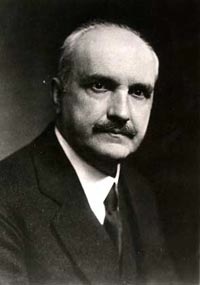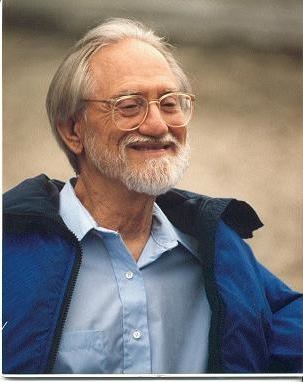Accepting and Engaging With Life

“There is no cure for birth and death save to enjoy the interval.”
–George Santayana (Spanish-born American Philosopher, Humanist and Poet, 1863-1952)

“Soliloquies in England and Later Soliloquies (Classic Reprint)” (George Santayana)
Loving Acceptance

“A conscious being knows that life always works best when we operate from a loving space that lets us receive and experience other people no matter what they do or say as no different from ourselves.”
–Ken Keyes (American “New Age” Author and Lecturer, 1921-1995)

“Handbook to Higher Consciousness: The Workbook (Keyes, Jr, Ken)” (Jr. Ken Keyes, Penny Keyes)
Don’t Ignore Wrongs Done to Others

“To bear with patience wrongs done to oneself is a mark of perfection, but to bear with patience wrongs done to someone else is a mark of imperfection and even of actual sin.”
–Saint Thomas Aquinas (Italian Dominican Friar, Theologian and Philosopher, 1225-1274)
Choosing To Be Happy?

For the last two decades, one of the central tenets of the self-help movement has been that we can choose to experience or to be whatever we want.
Many psychologists have also said that human happiness or subjective well-being is largely independent of our life circumstances. Therefore wealthy people are no happier than people of more limited means; married people aren’t much happier than single people and healthy people aren’t much happier than sick people. The keys to happiness are supposed to lie within us, in our attitudes and perceptions.
If these theories are correct – and they are theories – we would predict that changes in our life circumstances would not have long-term effects on our happiness. This has indeed been the dominant model of subjective well-being: people adapt to major life events, both positive and negative, and our happiness stays pretty much constant through our lives, even if it is occasionally perturbed by some big gain or loss. According to the theory, winning the lottery may make you happy for a little while, but it won’t make you happier in the long run.
Not unless you have made the choice to be happy.
Similarly, while a divorce or major illness might throw your life into turmoil for a while, your happiness level will eventually return to where it was before. The idea has been that of sense of subjective well-being has a set point, and that a change in beliefs or attitudes can change the set-point.
But is this true?
New research, and reexamination of old research, is challenging some of the claims of set-point theory.
In this month’s issue of Current Directions in Psychological Science, Richard E. Lucas of Michigan State University and the German Institute for Economic Research, reviews some recent studies suggesting that adaptation to changing life circumstances only goes so far. As he says, “Happiness levels do change, adaptation is not inevitable, and life events do matter.”
To study adaptation, Lucas and his colleagues used data from two large national prospective panel studies, one in Germany and the other in Great Britain. Unlike most previous studies of adaptation, these data were able to capture levels of life satisfaction both prior to and after major life events like marriage, divorce, unemployment, and illness or disability.
Lucas found that not all of life events are created equal. For example, most people adapt quickly to marriage. They have peak in subjective well-being at the time of getting married, but within about two years, their happiness levels return to their previous levels.
People usually adapt to losing a spouse, but it takes a lot longer: on average about seven years. People who get divorced and people who become unemployed, however, do not usually return to the level of happiness that they experienced before. The same can be said about physical debilitation. Numerous recent studies have demonstrated that major illnesses and injury result in significant, lasting decreases in subjective-well being.
But Lucas also found that individual differences play an important role. There is a great deal of individual variation in the degree to which people adapt to what life throws at them. We know that life events run in families: there is a genetic predisposition to having multiple life events. People who are destined to experience certain life events differ in their subjective well-being from those who do not, even before the occurrence of those events. As an example, people who were happy 5 years before their marriage, stay married, and also stay happier than those who are destined to marry and get divorced.
Lucas stresses that his findings do not undercut the importance of adaptation processes. Some degree of adaptation necessarily protects us from prolonged emotional states that may be harmful, and helps us attune to novel threats to our well-being rather than dwell on ones we are familiar with. Adaptation also helps us detach from goals that have proven unrealistic.
So what does this mean to us personally? It is rather like the statement attributed to the German priest and scholar Martin Luther, “Pray as if everything depends on God. Then work as if everything depends on you.”
- Make the choice to be happy, but that choice will, on its own, achieve little unless you also work to change your life circumstances
- The choice to be happy will not be crowned with success unless you really feel that you want it deep down inside: it has to be a core desire
- Not everyone can make the choice because they are not wired that way
- Do not be disheartened if you make the choice to be happy and things don’t quite work out. Some pop psychologists and gurus have told their followers that if they failed to find happiness, then they were inadequate, or did not want it enough. That kind of nonsense can cause needless guilt and suffering. Sometimes life chucks too much at you at once, and it’s okay to be unhappy. It does not mean that you are a wimp, or that you didn’t want happiness enough
- The best way to deal with a world that throws a lot at you is to learn the art and science of resilience and acceptance
But also remember something else: the great sages have always taught that happiness is our natural state, and the art of living is to return to that natural state.
But most importantly, to help others get there as well.
“Action may not always bring happiness; but there is no happiness without action.”
–Benjamin Disraeli, 1st Earl of Beaconsfield (English Statesman, Novelist and, in 1868 and from 1874-1880, British Prime Minister, 1804-1881)
“Forgiveness is the key to happiness.”
–A Course in Miracles (Book of Spiritual Principles Scribed by Dr. Helen Schucman between 1965 and 1975, and First Published in 1976)
“Happiness is the very nature of the Self; happiness and the Self are not different. There is no happiness in any object of the world.”
–Ramana Maharshi (Indian Hindu Mystic and Spiritual Teacher, 1879-1950)
Loss, Yearning and Acceptance
Like most doctors over the last forty years, I was raised on the works of Elisabeth Kübler-Ross.
She was a Swiss-born psychiatrist and the author of the influential book On Death and Dying, where she first discussed what is now known as the Kübler-Ross model.
She was born in Zürich, Switzerland, and interestingly was one of a set of identical triplets. She graduated from the University of Zürich medical school in 1957 and a year later moved to the United States to continue her studies.
As she began her practice, she later wrote that was appalled by the hospital
treatment of patients who were dying. She began giving a series of
lectures featuring terminally ill patients, forcing medical students to
confront people who were dying. Her extensive work with the dying led
to the publication of On Death and Dying in 1969. She wrote over 20 additional books on the subject of dying.
She also proposed the now famous Five Stages of Grief
as a pattern of phases, most or all of which people tend to go through,
in sequence, after being faced with the tragedy of their own impending
death.
The five stages of grief are, in order:
- Denial
- Anger
- Bargaining
- Depression
- Acceptance
The five stages have
since also been adopted by many as applying to the survivors of a loved
one’s death. Some of us have also applied these stages to the understandng of people’s psychological responses to chronic illness.
As influential as the theory has become, it has not, until now, been subjected to much research.
A study on the stages of grief was published in Journal of the American Medical Association at the end of February by researchers from Yale School of Medicine. The entire article is available for free download.
What they found was that in contrast to the Kübler-Ross model, yearning and acceptance are the two most salient emotions individuals experience after a significant loss.
The study was based on interviews with 233 bereaved individuals living in Connecticut between January 2000 and January 2003. The vast majority were spouses of the deceased and the remaining were adult children, parents, or siblings of the deceased.
The lead author Paul Maciejewski, assistant professor of psychiatry and director of the Statistical Modeling Core of Women’s Health Research at Yale, had this to say:
"We found that disbelief was not the initial, dominant grief indicator. Acceptance is the norm in the case of natural deaths, even soon after the loss. And yearning, not depression, was the most common potentially adverse psychological response."
Yearning is one of the defining features of grief and is an emotion that most clearly reflects the absence of the deceased.
"Yearning is a longing for reunion with the deceased loved one, heartache about an inability to reconnect with this person. Individuals may cognitively accept the death of a loved one, but they may still pine for them and experience pangs of grief (i.e. yearning)."
According to the study, disbelief, anger, and depression were not as prominent as yearning and acceptance. However, each grief indicator varied as a function of time after the loss. In partial support of the stage theory, disbelief reached its peak immediately following the loss. Yearning, anger and depression reached their respective peaks at four, five and six months after the loss and acceptance reached its peak beyond six months after the loss.
These feelings peak and begin to decline by six months in the case of a natural death. Those who experienced the loss were more likely to be accepting of the death if it occurred within six months or longer after a diagnosis. The research confirmed what we see in clinical practice: deaths due to trauma or that occur within six months or less of diagnosis cause the most distress.
As Maciejewski said:
"The persistence of negative emotions beyond six months following the death reflect a more difficult than average adjustment and suggests a need for evaluation by a mental health professional and potential referral for treatment."
This is important research that gives all of us some practical guidance on how to understand, help and support people at a time of loss. It is also important to note that the study did not examine the mitigating effects of religious or spiritual beliefs, which we know can help people deal with loss.
After all, funerals are not held for the dead, but for the people left behind.
“Bereavement is a darkness, impenetrable to the imagination of the unbereaved."
–Iris Murdoch (Irish-born Writer and Philosopher, 1919-1999)
Wishing You Great Learning Opportunities in the New Year!

“The world is the great gymnasium where we come to make ourself strong.”
–Swami Vivekananda (Indian Hindu Mystic and Spiritual Teacher, 1863-1902)
A lot of people tell me that they are pleased to see the back of 2006, and we certainly had more than our fair share of challenges during the year, having lost four members of our family in just a few months. The fact that they were not all human didn’t change the impact one bit.
But for all the people who have told me about their negative thoughts about the year I’ve said the same thing: the year has actually been a terrific learning experience. That’s not to say that we should slap a big smiley face on every pain, hardship and adversity, but it does mean that it is essential for all of us to try and find the meaning in the events that have happened in our lives.
When Nietzsche said “That which does not kill me makes me stronger,” he was giving voice to a peculiarly Germanic ideal of the time: that people need to be tested and tempered like steel. That’s not what I mean at all.
The three best and most effective ways of dealing with adversity are first to extract meaning from the event or situation: “Why is this happening?” “Is it just dumb bad luck or is there more to it?”
The second essential is to learn to detach from an event, so that it no longer has its emotional claws in you.
And the third is to accept a situation. Not in some passive way of letting life bowl you over, but of being able to acknowledge an experience and then using it as the basis for wise action.
Each of these can take a lifetime to learn the hard way, but you can actually master them very quickly with a series of simple steps.
I am going to be sharing some of them with you in the coming months. I am also going to be publishing an eBook on the topic of resilience, because detachment and acceptance come much more easily to the person with robust resilience.
Having recently had to make a number of unexpected trips overseas has delayed our publication schedule by three months, but we shall be back on track by the end of January.
And here’s a final thought for you from Healing, Meaning and Purpose: adversity is an invitation to grow. If approached in the right way, apparently negative events can lead to a shift in your consciousness and rapid spiritual development.
In fact the majority of my own teachers could trace their spiritual maturation to major life events that at the time seemed to be the end of the world.
Remember that what the caterpillar thinks to be the end of the world, is, for the butterfly, just a new beginning!
“Trials, temptations, disappointments — all these are helps instead of hindrances, if one uses them rightly. They not only test the fiber of character but strengthen it. Every conquering temptation represents a new fund of moral energy. Every trial endured and weathered in the right spirit makes a soul nobler and stronger than it was before.”
James Buckham (American Naturalist and Writer)
“The most spiritual human beings, assuming they are the most courageous, also experience by far the most painful tragedies: but it is precisely for this reason that they honor life, because it brings against them its most formidable weapons.”
–Friedrich Wilhelm Nietzsche (German Philosopher, 1844-1900)
“Out of confusion, you invent something permanent – the Absolute, the Brahman or God.”
–Jiddu Krishnamurti (Indian Spiritual Teacher, 1895-1986)
Multiple Sclerosis and Integrated Medicine
Although there are some fairly effective conventional therapies for multiple sclerosis (MS), many people with MS explore complementary and alternative medicine (CAM) therapies for their symptoms. The most effective strategies are to combine conventional and unorthodox treatments that address the physical, psychological, social, subtle and spiritual aspects of the illness. This combined approach also avoids the problem of people taking herbs or supplements that may either interact with each other or with conventional treatments.
It is also essential for us to get over the idea that MS is just something to be conquered. That may seem like an odd comment, but the language and the mindset of fighting, battles and warfare can be problematic. Let me explain something that I discuss at length in Healing, Meaning and Purpose.
There have been two distinct approaches to health in the Western medical tradition. The first is that the role of a physician is to treat diseases. That is the way that all my colleagues and I were trained. The second approach is to consider that health is the natural order of things. So in the first case we constantly hear the use of military metaphors: People speak of “a war on cancer,” “killer cells,” “magic bullets,” and the need to adopt a “fighting spirit.” Sadly this aggressive attitude by the medical profession may be at odds with the wishes and needs of an individual, the family and the other people in a person’s life. We have to try to strike a balance between the whole instinct to fight and expressions of healing and acceptance.
In the second case, the philosophy is grounded in the idea that we need to work in harmony with nature. The maintenance of health and well being comes from reestablishing balance and harmony not just in ourselves but also in our relationships with each other, with society and with the entire environment around us.
Some of the most commonly CAM therapies include dietary modification, nutritional and herbal supplementation, and mind-body therapies. There has been a revival of interest among MS researchers about the therapeutic potential of low-fat diet and essential fatty acid supplementation in MS. The research on CAM therapies in MS is still exploratory, but considering peoples’ interest and common use of these therapies, further research in this area is clearly warranted. Many sufferers show “spontaneous” recoveries, so reports of cures with unorthodox remedies are often treated with skepticism.
Diet, Vitamins and Supplements: There have been scattered reports of symptoms improving after the removal of dental amalgam, but there is scant evidence that this is really worthwhile. There is some evidence 1. 2. 3. 4. that polyunsaturated fatty acid (PUFA) supplementation may help MS. There used to be a lot of support for something called the “Swank diet,” but over the years the evidence has not been very good. In a small number of people with MS certain foods can make them worse. This is to expected if there is an autoimmune component to the illness. It is always a good idea to see if there is something that makes a person feel worse. The other important qestion is whether food additives may be causing symptoms. Although this must be uncommon, I have written elsewhere about occasional cases of MS symptoms with all the classical neurological, biochemical, radiological and electrical signs that have improved or become completely better after removing aspartame from the diet.
Physical exercise: Exercise is highly recommended for people with MS, though it is best to avoid it during an attack. There is evidence that over-exertion can actually bring on an attack. There is some literature about the use of Feldenkrais bodywork in MS, but a study from the University of North Carolina failed to find any benefit. T’ai Chi Ch’uan, qigong, yoga and graduated exercise have all been helpful to some people with MS, but it is essential to discuss it with a healthcare provider to see how any one of these fits in to an package of care. There is no published data on the use of Pilates in MS. At least not in any of the languages that I can read. But since it has been shown to improve posture and flexibility, it is logical to think that Pilates might be helpful, and it would be very valuable to see some research on it.
Acupuncture: Although widely used, the research on acupuncture in MS is not yet convincing. Like most acupuncturists I’ve had some good results in treating pain, muscle stiffness and fatigue. I’ve also seen people achieve some remarkable recoveries, but there are two issues: MS is a relapsing and remitting illness. And second, many of the people who did well only did so because they shifted their thinking: acupuncture became the vehicle for their personal transformation rather than a device for removing nasty symptoms.
Homeopathic remedies: Even the most enthusiastic homeopaths have fairly limited expectations of what homeopathy can achieve in MS.
From the point of view of homeopathy there is little point in making the diagnosis on multiple sclerosis because the disease has such a variable course with highly variable symptoms. To a homeopath the diagnosis is not useful: it is the symptoms that are all important. The homeopathic treatment of MS is highly individualized: one of the key items is the timing of symptoms and associated features. Some of the most common remedies for people with MS are:
- Agaricus
- Alumina
- Argentum Nitricum
- Arsenicum
- Aurum Metallicum
- Causticum
- Cocculus
- Conium Maculatum
- Ignatia
- Lachesis
- Nux Vomica
- Natrum Muriaticum
- Phosphorus
- Plumbum
This is not the whole list of homeopathic remedies that we have sometimes found helpful, but it highlights some of the more commonly used ones in people with the symptoms of MS.
Herbal remedies: Many herbal remedies have been tried in MS, and many experts have told me that they have had some good results. There is an important issue in MS called “apitherapy,” a.k.a. bee venom therapy (BVT). Several reports suggest that bee venom may be an effective treatment for patients with MS. But formal trials suggest that although the treatment appears relatively safe apart from itching and swelling of the skin, it does not seem to be helpful.
The best approach is to embrace the best of what conventional medicine has to offer, combine unorthodox approaches and to realize that management of a chronic illness is not about dominating it but learning from it and learning strategies for peacefully co-existing with it.







